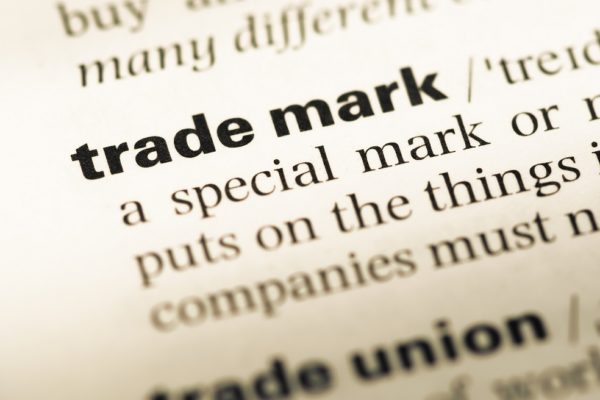Frequently Asked Questions
What is a trade mark?
A trade mark is a signifier of origin. Every business in the world has a name, and this is how consumers distinguish you from your competition. Owning that name is vital, and registering it as a trade mark is the best way to protect it.
But trade marks don’t just safeguard words. They can also monopolise logos or slogans and, in some cases, product shapes and colours. For this reason, a trade mark is a robust intellectual property right and something no business can do without.
Why are trade marks important?
There are three core benefits to owning a trade mark, which apply to every business. The first is obvious; registering a trade mark allows you to stop third parties from using the same (or similar) name for the same (or similar) goods and services.
Second, going through the trade mark application process is the best way to ensure that your brand name doesn’t infringe on someone else’s registered brand, which could lead to significant legal issues in the future.
Last but certainly not least, a trade mark is a significant commercial asset. It is often the first thing an investor or eventual purchaser of your business will look for as it’s a clear indication that your brand name is more than just “known” and is, in fact, “owned”.
How long does it take to register a trade mark?
The length of time it takes to register a trade mark depends on where you are applying. In the UK, applications take approximately 3-4 months. In the EU, it’s more like 4-6 months.
The key, however, is to get your application underway. As soon as you do, you’ll have a filing date and a trade mark number. This flag in the ground will be vital should competitors file an application for a similar mark after you.
What legal protection does registering provide?
Registering your trade mark provides your business with protection against infringement from third parties who may be seeking to exploit your hard-earned reputation. The damage this could cause is concerning. However, registering your intellectual property as a trade mark allows for swift and effective action against anybody abusing your IP. A registered trade mark forms a protective legal barrier around your business’s IP assets and prevents others from imitating your business.
Registering trade marks is also a sign to potential investors that you have secured adequate protection for your business, reassuring them that your brand is safeguarded.
Could someone object to my application?
Once the UKIPO has approved your application, it will be published in the online Trade Marks Journal for two months. This is to allow time for others to object to your application if they determine that it may be infringing on their previously registered trade mark. There are several reasons why somebody might oppose your trade mark application.
A third party might not formally object to your application at first. Instead, they may file a notice of threatened opposition. This extends the objection period by one month to three. A notice of threatened opposition allows both parties to communicate and negotiate an agreement without resorting to costly legal action.
What should I do if someone infringes my trade mark?
If you believe another individual or company is using your trade mark (or something similar), then you should try to collect some evidence, with screenshots and website links being best.
Next, you should speak to experienced trade mark lawyers. If that’s us, we will assess the details of the case and advise on the best course of action. The aim should always be to end infringement most quickly and cost-effectively.
What actions are considered trade mark infringements?
Under the Trade Marks Act 1994, an infringement occurs typically when a party uses branding (e.g. names, logos, colours) that is the same or similar to an earlier trade mark. In particular, with goods/services that are the same or similar to the goods/service protected by that earlier trade mark.
Furthermore, trade marks with a significant reputation are protected from copying regardless of the goods or services that the third party is selling. The idea is that certain brands are so huge, any form of replication will be an infringement.
What can I do about a trade mark infringement overseas?
Fortunately, Briffa has both an office in the EU and a network of associates worldwide. This means we can protect our client’s rights wherever the infringement occurs. We can oversee the process, direct the strategy and ensure that the costs are kept to a minimum.
What can a trade mark lawyer help me with?
A trade mark lawyer can help protect your valuable intellectual property. As standard, they can help file a trade mark application, submit or resolve trade mark opposition claims to a new mark, and litigate or defend an infringement. But just as importantly, they work as specialist advisors and problem-solvers for your business, helping you to maximise your commercial value through the intellectual property assets you own.
Reach Jennifer
Efficient and reliable. Cassine and the team were an absolute pleasure to work with. Trademark was successfully registered. Their professionalism and expertise … More made the experience seamless. Highly recommend!★★★★★Brian
Excellent service we registered a trademark for our company and Cassine was very helpful and professional and guided us through the process with ease, … More would highly reccomend and will definately be using these guys for future business.★★★★★Brian Shields
Excellent service we registered a trademark for our company and Cassine was very helpful and professional and guided us through the process with ease, … More would highly reccomend and will definately be using these guys for future business.★★★★★Lauren Jones
I am incredibly grateful to Briffa for their invaluable assistance in addressing a DMCA takedown notice and trademark infringement. Katie Moruzzi handled … More our case with exceptional service, demonstrating thorough knowledge, unwavering support, and excellent communication. I wholeheartedly recommend Briffa and Katie - they are meticulous professionals!★★★★★Nilio Bagga
I can't praise Briffa and particularly, Mohammad enough for their exceptional service during a three-year trademark dispute. Their professionalism, … More quick responses, and tailored solutions were a tremendous help to our business.★★★★★Vale How
I had the pleasure of having a consultation with Cassine Bering, and I highly recommend Cassine’s services. Cassine has exceptional knowledge and expertise … More in the field of intellectual property and trade mark’s registration, providing me with valuable guidance.★★★★★


